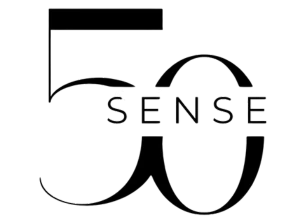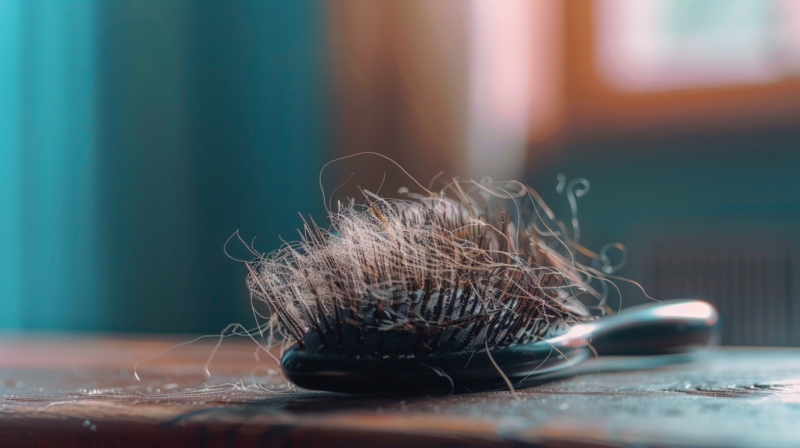
Share Post:
Losing your hair is something we associate with men, but did you know up to two-thirds of women suffer some form of hair loss in their lives?
Studies show that hair loss can have a huge psychological impact on women. Larry David jokes about a secret society of bald men, one in which they give each other the thumbs-up when they pass, and we all know the jokes about bald men being more virile.
But on women, hair loss leaves us feeling more negatively about our body image and can lead to a lower quality of life. Losing your crowning glory makes women feel less attractive and this can lead to them cutting back on social interaction.
Female pattern hair loss can have a devastating effect on how you feel – I know for me, losing my hair has been one of the worst parts of peri-menopause. I can deal with it on confident days, but then I’ll catch sight of myself in a shop window or on a photo and that’s it: day ruined.
At first, I could laugh it off as it wasn’t too bad – I even wrote about it for Good Housekeeping, a light-hearted piece brimming with confidence.
But as I write this, I can feel a lump forming in my throat just thinking about how my receding hairline makes me feel at times. I look at women with beautiful hair and feel… ugly.
Is that vain? Ridiculous? A First World Problem that I should be ashamed of?
Indeed, going to the doctor certainly left me feeling this way. I went after being told to ask for a referral from a dermatologist I’d met at a press event, but the GP refused. “We know about these things, too,” she said.
It turns out that she knew a dandruff shampoo to suggest. It didn’t work.
This is hard to admit, but sometimes the feeling has gotten so bad that I’ve started googling hair transplants. Who’d’ve thought I had something in common with Wayne Rooney?
I know. That’s extreme. But the best way I have of explaining how bad female pattern hair loss can make you.
If you’ve noticed your hair is thinning, however, there is help available and the sooner you tackle it the better. From supplements to hair growth programmes, there is a range of treatments available. I wish I hadn’t let my brush-off from the GP affect me so much because I may have been able to prevent further loss.
So you won’t end up like me, I asked top trichologist Anabel Kingsley, daughter of the haircare specialist Philip Kingsley, for her tips and advice to help if you’re suffering from hair loss.
What Are the Causes Behind Hair Loss?
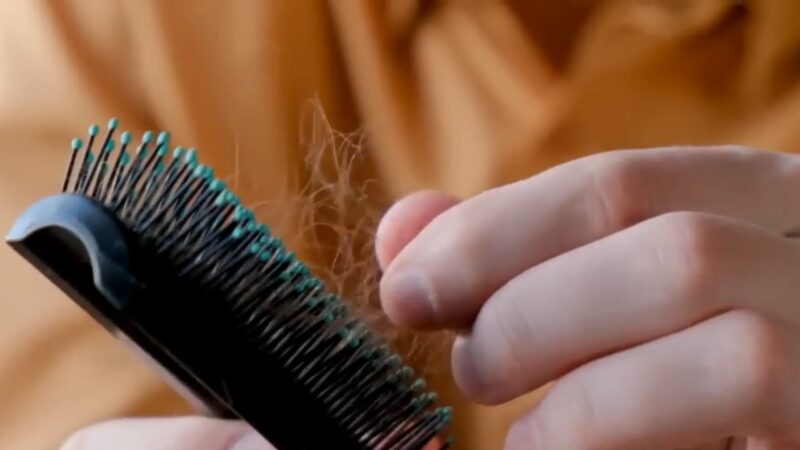
There are many potential causes of hair loss. Diet is a very common one because hair is, physiologically, a dispensable tissue. If we were to wake up one morning having lost all of our hair, while psychologically it would be devastating, it would have no effect on our physical health. As such, our hair is the last part of us to receive nutrients we ingest, and the first to suffer when our diet is lacking.
Other common causes of hair loss are hypo or hyper-thyroid, stress, ill-health, and post-pregnancy. Again, because hair is a non-essential tissue, it is an exceptional barometer of our general health.
Another common cause of hair loss is having a genetic predisposition to reduced hair volume. This is where hair follicles on your scalp are genetically predisposed to be sensitive to normal levels of circulating androgens [male hormones]. This causes hair follicles to very gradually shrink and produce strands of a finer diameter.
It is not unusual for there to be more than one-factor causing hair loss.
Can a Supplement Really Boost Hair Growth?
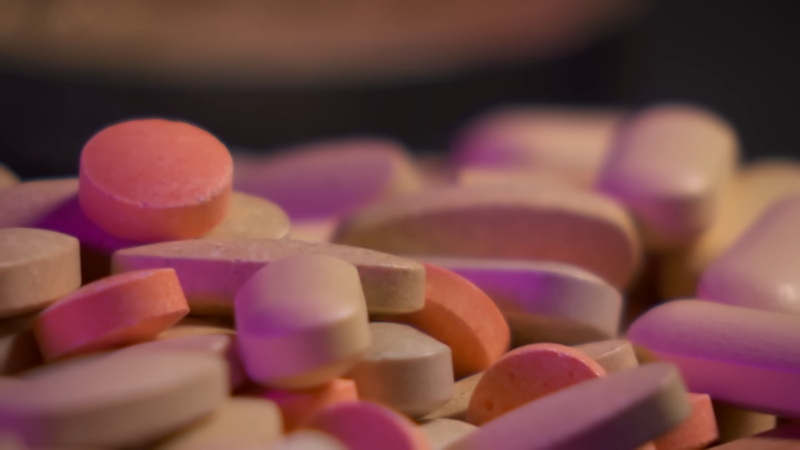
A supplement can most definitely boost hair growth if you are losing your hair due to a nutritional factor. Supplements containing protein and biotin can also bolster the strength of newly growing strands.
However, if your hair loss is completely unrelated to diet, supplements are not going to fix it.
The most important thing to understand when it comes to diet and dietary supplements is that your hair’s nutritional requirements are unique and incredibly high.
Firstly, because hair is non-essential tissue it is given last dibs on whatever you eat. Secondly, because hair cells are the second-fastest growing cells the body produces, strands need a consistent supply of energy in order to grow.
Due to your hair’s unique nutritional demands, it can be difficult to give it all the nutrients it needs through diet alone. Supplements, such as PK4 Soya Protein Boost, can therefore be incredibly handy as they provide an extra boost of readily available vitamins and minerals.
What Can’t This Be Done Through Diet Alone?
It is always a combination of the two: changes to diet, alongside relevant supplements. Supplements are not meant to replace healthy eating; they are meant to provide an extra boost of nutrients.
What Ingredients Should We Look for In a Hair-Growth Boosting Supplement?
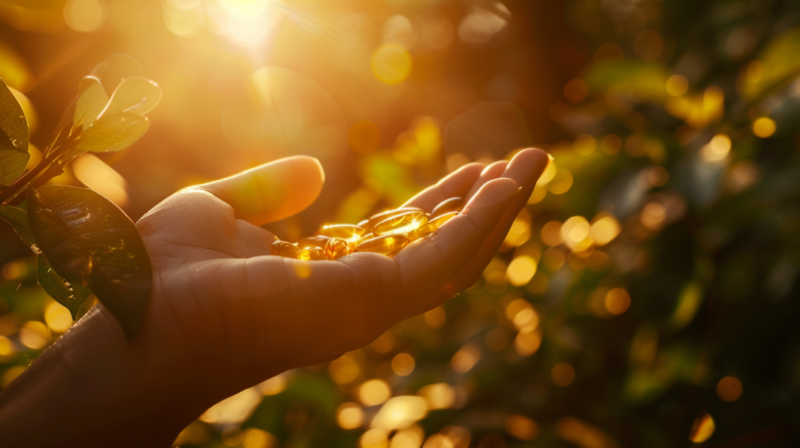
I recommend everyone takes a daily protein supplement because your hair is made of protein and hardly anyone eats enough protein from a hair-health standpoint.
In terms of other ingredients, it depends on your individual requirements. You definitely don’t want to be popping loads of supplements if you don’t need them. I suggest having a yearly blood test and basing your supplement intake on the results.
What Other Ways Can We Boost Hair Growth?
Manage stress levels – Stress can affect the hair growth cycle, so it is important to find ways to reduce stress levels. Yoga, meditation and Pilates are all good options.
Minimize breakage – If your hair is breaking at the ends, it will not be able to grow past a certain length. Use a weekly pre-shampoo conditioning treatment to strengthen strands. I recommend our Elasticizer. (I second this. The new Pomegranate & Cassis Elasticizer has the most beautiful, invigorating scent and has stopped the hairdresser asking if I want a treatment at my appointments – 50Sense)
Look after your scalp – Scalp health is key to healthy hair growth. Try to shampoo regularly (daily to every other day) to keep your scalp clean and flake-free; a flaky scalp can cause hair loss. Once weekly, use an exfoliating scalp mask to gently lift away dead skin cells. Like the skin on your face, your scalp benefits from gentle weekly exfoliation. (For more advice on itchy scalps, read Anabel’s guide here.)
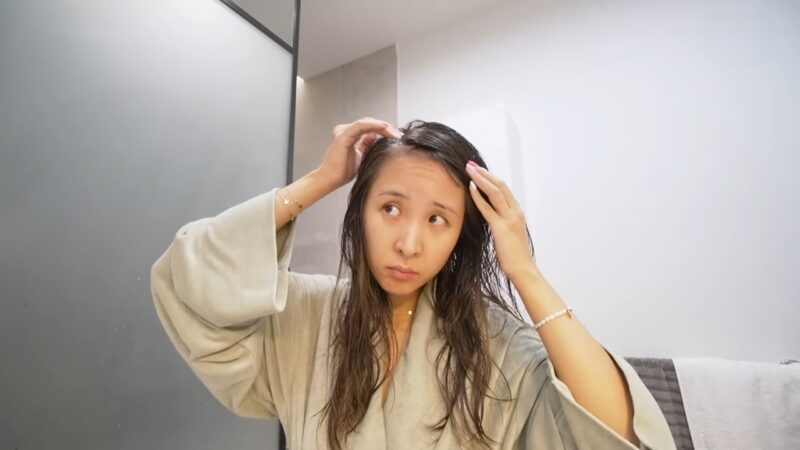
Never skip breakfast – Breakfast is the most important meal of the day for your hair as it’s when energy to form hair cells is at its lowest.
A “hair-healthy” breakfast will include a portion of protein and a complex carbohydrate, such as eggs and wholewheat toast, smoked salmon on a bagel, or quinoa porridge with nuts and berries.
Snack between meals – Energy to form hair cells drops four hours after eating. To keep your energy levels sustained, snack on a nutrient-dense food to keep your follicles happy between meals.
Have you noticed your hair thinning? What do you do to help it? I’d love to hear your tips in the comments below.
If you’ve enjoyed this, please like and subscribe and share with your friends – especially if they’re losing their hair!
Related Posts:
- Itchy Scalp: Anabel Kingsley’s Tips To Treat Menopausal Hair
- How Long Will Your Pink Hair Dye Last? Tips to Make It Stay
- Is Your Hair Long Enough for a Perm? Men’s Guide to…
- Is Cantu Making Your Hair Fall Out? An In-Depth Look
- Types And Causes Of Breast Discharge - What Your…
- The Science of Happiness ─ How it Impacts Your…

